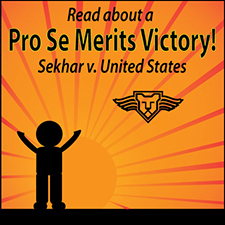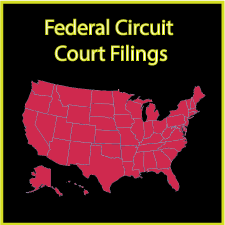Petition of the Month, Feb 2014: McDermott v. Pifer
The Supreme Court Press “Petition of the Month”TM for February 2014 is Barbara McDermott v. Kevin Pifer, Supreme Court Dkt. No. 13-1005, an appeal coming out of the North Dakota Supreme Court. The petition was filed by attorneys Alexandra and John Siskopoulos of the Siskopoulos Law Firm, LLP, of New York City and Boston, which specializes in handling complex appellate matters in New York and Massachusetts courts.

Question Presented:
Whether Petitioner Barbara McDermott’s Due Process rights were violated whereas two Justices of the North Dakota Supreme Court, who authored opinions in this case, had significant connections with Respondent Pifer depriving Petitioner McDermott of a fair tribunal? (Specifically, the petition alleges that Respondent Pifer is Facebook friends with Justice Sandstrom)
Social media is everywhere - Facebook, Twitter, Instagram, Google Plus, Linked In - humans are social creatures and they want to be connected. But what about judges, or as in this case, justices of the North Dakota Supreme Court? Is it appropriate for them "friend" other members of the Bar-how about when they are Facebook friends with one of the parties and don't recuse themselves? The petition of McDermott v. Pifer, Supreme Court Dkt. No. 13-1005, takes on this issue. The petition states that the late Dorothy Bevan had at one time given a purchase option to North Dakota resident Kevin Pifer, that was gratuitous-i.e. no consideration was paid. The late Ms. Bevan, a few years later entered into a joint tenancy for the family farm with her only child, Barbara McDermott. When she passed away, Mr. Pifer attempted to exercise the option. However, Ms. McDermott now had title due to the joint tenancy agreement. Her position was that a vast body of case law held that gratutious options expired at death. However the North Dakota courts ruled that its resident, Mr. Pifer, could exercise the purchase option and that it was like a "gift" that had passed to him. According to the petition, when the case went for appellate review, Mr. Pifer had personal relationships with two justices. He was Facebook friends with Justice Sandstrom. In addition, a judge who had previously recused himself, Justice Carrothers, changed his position and decided to "un-recuse" himself from the case. Ironically, Justice Carrothers has written a journal article about the impropriety of Facebook relationships with judges and parties. |
 The appearance of justice certainly was not evident in this case. Justice Sandstrom is a Facebook friend of Kevin Pifer–an exceptionally well-connected businessman in the State of North Dakota. - McDermott Petition
The appearance of justice certainly was not evident in this case. Justice Sandstrom is a Facebook friend of Kevin Pifer–an exceptionally well-connected businessman in the State of North Dakota. - McDermott Petition| Thank you for sitting down with us and discussing an issue that is touching every aspect of our lives that has now made its way into judicial proceedings – social networking, and more specifically whether it is permissible or prejudicial for a North Dakota Supreme Court justice deciding an issue to be Facebook friends with one of the parties. | |
Obviously, we think it’s prejudicial or we wouldn’t have filed a Petition to the U.S. Supreme Court. With the explosion of social media, we think it’s an issue that our nation’s highest court should address. The state appellate courts in this country, and the federal appellate courts, should have some guidance on this important issue. |
|
| Why should the average American care about this case? | |
The average American feels the U.S. Supreme Court is supposed to protect the little guy. Barbara McDermott is the little guy. Many Americans, and I speak to numerous potential appellants and petitioners, feel the U.S. Supreme Court has forgotten the little guy. We sincerely hope that this Court not only grants Cert., but ultimately rules in my client’s favor. Otherwise, when a Judge is confronted about a social media friendship he or she may respond “So what? Proceed.” We cannot tolerate that in our legal system. |
| Before we discuss the Facebook issue, we should first cover another important issue that you raised—that of a daughter losing out on her inheritance to a wealthy and well-connected businessman, when the North Dakota Supreme Court refused to recognize a legally executed joint tenancy deed, while legitimizing a purported purchase option whose terms were obsolete once the joint tenancy had been executed. Can you give us some background on the facts? | |
As this case is currently before the U.S. Supreme Court, we would advise that people refer to our Petition currently on file with the U.S. Supreme Court for a background of the case. We think an injustice occurred here, and our client (Barbara McDermott) will have a very difficult old age because of the North Dakota Supreme Court decision. |
|
| If Mr. Pifer never paid anything for the option, how is this any different from just a regular offer? | |
Our position, which is supported by overwhelming case law, is that a gratuitous option lapses upon the death of the offeror. Thus, we believe the option was not valid. Just as important, is that Ms. Bevan established a joint tenancy deed with her daughter. Thus, we believe our client clearly deserves the now litigated property. |
|
If the appellate court deemed the option to be a “gift,” was there any evidence that Mr. Pifer reported this valuable gift to the IRS in the year he received it? |
|
That’s a good question, but I’m not able to answer that question. |
|
Was there evidence that the relationship between the late-Dorothy Bevan and Mr. Pifer had broken down? |
|
Prior to Ms. Bevan’s death, Mr. Pifer’s company apparently sued Ms. Bevan. I think that speaks for itself. |

Was there evidence presented that the late-Dorothy Bevan was of sound mind when she executed the joint-tenancy? |
|
As was noted in our Supreme Court Petition, a well-respected and AV rated attorney provided an affidavit that Ms. Bevan was of sound mind and went into great detail how this deed was prepared. I have no reason to doubt that attorney’s assessment. |
|
What is the impact, in your opinion, of a Justice and a party being Facebook friends? |
|
We cite a quote by Justice Kennedy in our Petition which we think explains our position. Justice Kennedy noted “[i]n matters of ethics, appearance and reality often converge as one… ‘[J]ustice must satisfy the appearance of justice’ and must also preserve “ ‘both the appearance and reality of fairness,’ which ‘generates the feeling, so important to a popular government, that justice has been done.’” Liteky v. U.S., 510 U.S. 540, 565 (1994). |
|
| How do you feel about a counter-argument that Facebook is more about a social-connection than a true “friendship” and that a social-connection does not indicate friendship? | |
Let me be blunt. I believe a judge who has a Facebook friendship with a party does not belong on that particular case. I don’t think the average American would be comfortable appearing before a judge who is Facebook friends with the opposing side. This is a burgeoning issue that I sincerely believe the Supreme Court needs to address. |
|
| Thank you Alexandra and John. We are in full agreement that this is a rapidly percolating issue that needs to be addressed by the High Court. We think you are presenting a strong vehicle for review and wish you and Ms. McDermott luck at conference. | |
Thank you. I'd also like to add, the Supreme Court Press, in my humble opinion, is a first rate operation. Our experience with them is that they are very knowledgeable about appellate court rules and extraordinarily professional. |
 Let me be blunt. I believe a judge who has a Facebook friendship with a party does not belong on that particular case. I don’t think the average American would be comfortable appearing before a judge who is Facebook friends with the opposing side. This is a burgeoning issue that I sincerely believe the Supreme Court needs to address. - John Siskopoulos
Let me be blunt. I believe a judge who has a Facebook friendship with a party does not belong on that particular case. I don’t think the average American would be comfortable appearing before a judge who is Facebook friends with the opposing side. This is a burgeoning issue that I sincerely believe the Supreme Court needs to address. - John Siskopoulos


---Bryan-Krumm.png)
---ZoeSpencer.png)


